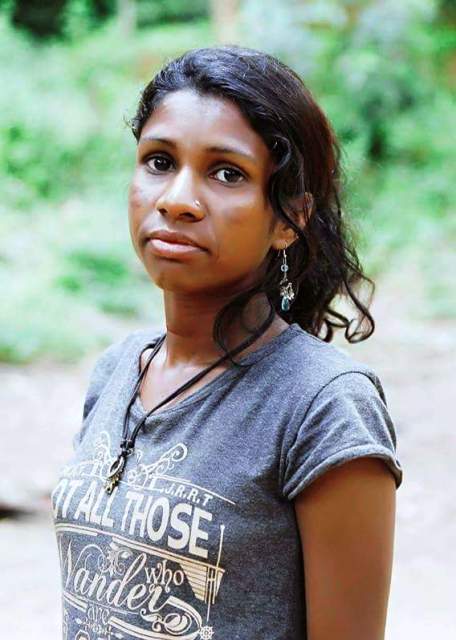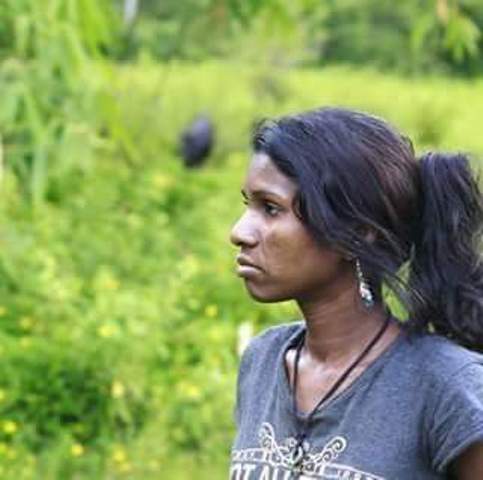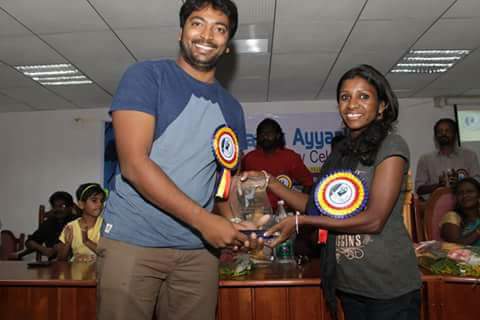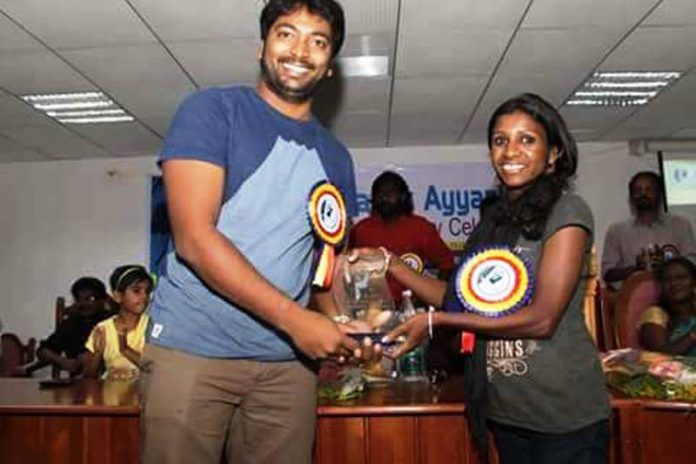By Shafeeq Hudawi, TwoCircles.net
Kerala is often presented as one of the most equitable states in the nation; a state where (at least relatively) your religion/caste does not matter as much as it does in other states. And while this may be true to some extent, there is no doubt that the marginalised communities in the state, especially Dalits and Adivasis, face the same issues as the rest of the country. And Leela Santhosh, a 29-year-old filmmaker and the only Adivasi to be doing so in Kerala, is trying to address the same with her works, starting with ensuring that the state’s numerous Adivasi communities are able to tell their own stories without the interference of non-Adivasis.

The journey of Leela, who is now making her second film, is extremely interesting. These days, it is imperative that you attend a film school if you wish to make a career in cinemas (especially if you wish to get into direction/editing). However, let alone a film school, Leela did not attend even a regular school. But that did not stop her from making her first documentary in 2010 called ‘Nizhalukal Nashtappedunna Gothrabhumi’ (the tribal land that has lost its shadows). Leela’s documentary threw light on the life and rituals of Paniya community from Wayanad. The film was exhibited in some festivals and Leela is now looking to exhibit it widely after adding subtitles.
Wayanad is home for various tribal sects including Paniyas, Adiyas, Kattunayakans, Kurichiyans, Kurumans, Ooralis and Urali Kurumans. Out of these tribes, only Urali Kurumans and Kurichiyans are part of the mainstream.
“Other tribes are still reluctant to mingle with others. And thus, outsiders are not familiar with their history. With these tribes, there were several heroes, whose stories remain unfolded,” says Leela in a conversation with TwoCircles.net.

Leela is now planning to make a feature film about a Paniya tribal chieftain Karinthandan, who is said to have helped an English engineer build the Thamarassery ghat pass. “He was a legend and not someone who helped invaders, as is often depicted by non-Adivasis. Several misconceptions about him continue to exist and I will try to address the same,” says Leela, who is now in her 30s.
Leela’s novel approach to retelling stories and focusing on issues comes from her ‘schooling’, except that it was never a regular school. Apart from time spent on filmmaking, Leela also active with Kanavu Gurukulam, an unique experiment in alternative schooling meant for educating Adivasi children. Leela spent 13 years from 1994 to 2007 in Kanavu, and is now helping the same school which shaped her thoughts and understanding.
Kanavu, which literally means dream, was set up by social activist K J Baby in order to resist the high dropout rates among tribal students in Wayanad. The school, which started in Panamarama with 25 students, discards conventional practices as there is no classroom, no syllabus and follows the “gurukul” system, where teachers live with students and receive no remuneration.
So far, around 400 students have been trained from the school and 50 in the total are non-tribal students. Since its inception, the school and its mode of teachings have also been tuned accordingly.
A few years ago, Kanavu almost stopped functioning due to a drop in the number of students, since the Adivasi students started integrating into public educational institutes. So, Kanavu became more an add-on to the public education system. “We changed the mode of teaching and now conduct extra classes for these children on the weekends. We also located students that dropout from schools and take them back. We are taking up efforts to prove that Adivasi kids are as talented as the ‘mainstream’ children,” says Leela.
At Kanavu, now 32 children aged between 5 and 13, are taught not through textbooks but by real life examples by reading and traveling. “Starting from the tribal settlements here villages, students are taken to travel across the country to help them learn through real-life experiences,” Leela says.

Students here learn music, painting, dance, theatre and martial arts, particularly Kalaripayattu, the traditional martial art of Kerala. Besides, they are given lessons of farming along with learning basic animal husbandry.
Along with Leela, 20 other alumni of Kanavu are active with its activities across Kerala. They manage to find the revenue to run the school by engaging in various professions like Kalarippayattu training and healing.
Kanavu is now drawing the international attention with visible impact on students from the marginalized sections. Now, they have visitors from various countries including Canada, Brazil and Germany.
“Kanavu is not irrelevant at all. The film workshops and exhibitions groomed me as a filmmaker. And my first work is a tribute for Kanavu. Several artists will be formed from Kanavu,” Leela, who is married to Santhosh Sankar, her classmate in Kanavu, adds. Santhosh is also part of Kanavu and running a Kalarippayattu training institute and healing centre.
Through Kanavu and her filmmaking, Leela is trying to ensure that while she may be the first Adivasi filmmaker from Kerala, she is definitely not the last. The Adivasis in Kerala have, for far too long, seen their history and stories told by non-Adivasis to suit their interests. Leela is trying to make sure that this changes; that their struggles, stories and achievements are presented by one of their own so that they do justice to the history of Kerala Adivasis.

